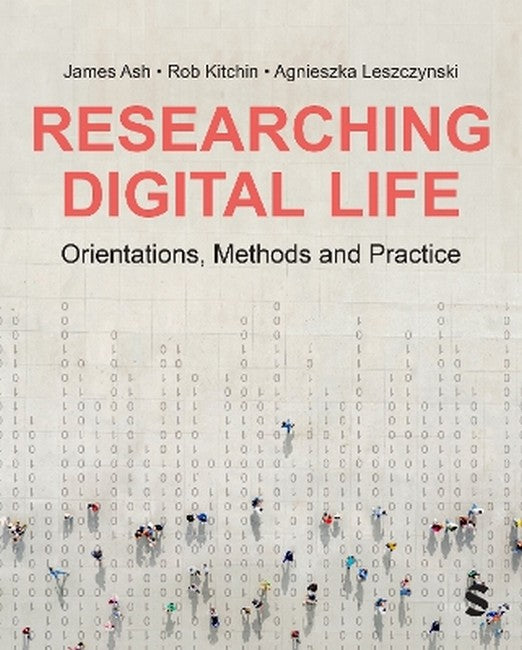James Ash is a geographer and Senior Lecturer in Media and Cultural Studies at Newcastle University. His research investigates the cultures, economies and politics of digital interfaces. He is author of Phase Media: Space Time and the Politics of Smart Objects (Bloomsbury, 2017) and The Interface Envelope: Gaming, Technology, Power (Bloomsbury Press, 2015). Rob Kitchin is a Professor in Maynooth University Social Sciences Institute and Department of Geography. He was a European Research Council Advanced Investigator on the Programmable City project (2013-2018) and a principal investigator on the Building City Dashboards project (2016-2020) and for the Digital Repository of Ireland (2009-2017). He is the (co)author or (co)editor of 31 other academic books, and (co)author of over 200 articles and book chapters. He has been an editor of Dialogues in Human Geography, Progress in Human Geography and Social and Cultural Geography, and was the co-Editor-in-Chief of the International Encyclopedia of Human Geography. He was the 2013 recipient of the Royal Irish Academys Gold Medal for the Social Sciences. Agnieszka Leszczynski is a Lecturer in the School of Environment at the University of Auckland, New Zealand. Her work is situated at the subdisciplinary interfaces of GIScience and human geography and examines issues around geospatial technologies and critical GIScience. She has published a range of articles in leading Geography journals including Progress in Human Geography and Environment and Planning D: Society and Space.
Request Academic Copy
Please copy the ISBN for submitting review copy form
Description
Orientations Introduction Methodologies, Ontologies and Epistemologies Research Design and Implementation Research Ethics Methods and Approaches Interviews, Surveys, Observation and (Auto)Ethnography Walking Methodologies, Walkthroughs and Audits Arts-Based Methods Participatory Methods Historical Methods Data Visualisation and Mapping Data Analytics Methods in Action Apps and Interfaces Social and Locative Media Mobilities Smart Cities Digital Labour Conclusion Final thoughts
"The pervasive digital mediation of everyday life presents unique epistemological, methodological, ethical, and practical challenges for social science researchers. This text offers researchers a thorough and greatly-needed critical review of these issues, along with vital guidance for undertaking studies of digital life." -- Sarah Elwood "This book represents a pivotal moment in digital social research. By exploring a comprehensive range of questions, methods and means of data generation and analysis, it captures the present and future of social research. Thoughtful, thorough and reflexive, the text insightfully details how to make sense of our digital lives." -- David Beer "Researching Digital Life is essential reading for anyone interested in investigating and understanding how the digital has become part of our lives. This excellent book offers an incredibly accessible and comprehensive guide to digital methods, and by introducing approaches from the social sciences, arts and computational sciences alongside each other it also delivers the interdisciplinary vision of digital research that all researchers will benefit from." -- Sarah Pink

